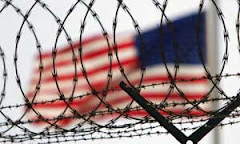Yesterday, P. Sabin Willett delivered
an important speech in Newburry, Massachusetts about his
Worst Moment As a Lawyer.
Willett's wide-ranging remarks addressed the justifications of torture that have gained currency in certain circles, including the "ticking time bomb" scenario famously advanced by Harvard Law Professor, Alan Dershowitz. Willett writes:
Torture hypotheticals might be harmless if they were merely stupid. But it isn’t that simple. When prominent intellectuals like Dershowitz and Yoo and prominent public servants like Attorney General Gonzalez become apologists for official cruelty, when they answer the question “May we torture?” with, “It depends,” instead of, “Never,” they sew vagueness among the policy makers. “It depends” is passed from the policymakers to the generals, and from the generals to the colonels, and from the colonels to the platoon commanders, and so on until “It Depends falls into the lap of a 20 year old Marine specialist in Afghanistan, who decides to string up by his arms in a US Air Base at Bagram, Afghanistan a young Afghan called Dilawar
...Except, now it wasn’t a hypothetical any more. It is a fact that Dilawar hung, Christlike, by his wrists from a wall, and called out to God as they beat him, until, on December 10, 2002, Dilawar was dead.
Willett goes on to elaborate on the erosion of habeas corpus and the sham Combatant Status Review Tribunal process. He also describes the plight of the Uighurs (Chinese Muslims) in Guantanamo and of those "released" to a compound in Albania.
His "worst moment" comes when Abdulnasir, a young Uighur detainee, loses his last bit of faith in American justice and asks Willett to abandon his habeas case. Willett's address is a powerful indictment of Guantánamo and U.S. detention policies in the "War on Terror." It is well worth the read.
 Candace has a new piece on the Michael Moore website (michaelmoore.com). The front page of the site features a picture of Candace in an orange jumpsuit. No, Candace hasn't been designated an "unlawful enemy combatant" (yet). As she explains in Ask me about Guantánamo, she is trying to raise awareness about the plight of detainees.
Candace has a new piece on the Michael Moore website (michaelmoore.com). The front page of the site features a picture of Candace in an orange jumpsuit. No, Candace hasn't been designated an "unlawful enemy combatant" (yet). As she explains in Ask me about Guantánamo, she is trying to raise awareness about the plight of detainees.







